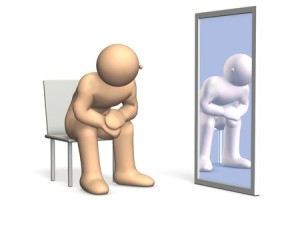By Rose O. Sherman, EdD, RN, FAAN
 I am often asked by leaders what they can do to improve their leadership. There are of course many answers to this question. If I had to pick just one – it would be to learn to reflect more on your leadership behaviors and actions. One of the interesting things that I have learned from my work with nurse leaders is that they leave little time for reflection in their daily work. Most leaders just stay in motion and keep putting out the fires without thinking about what progress (or lack of progress) that they are making.
I am often asked by leaders what they can do to improve their leadership. There are of course many answers to this question. If I had to pick just one – it would be to learn to reflect more on your leadership behaviors and actions. One of the interesting things that I have learned from my work with nurse leaders is that they leave little time for reflection in their daily work. Most leaders just stay in motion and keep putting out the fires without thinking about what progress (or lack of progress) that they are making.
So often when asked a question, a leader will tell me “I never really thought about this before”. Yet, we know that real learning from our experiences requires reflection. Until we reflect on situations looking at our own behaviors and actions, we may not develop the new insights needed that might lead us to act differently in the future. Gaining wisdom from any experience especially the unsuccessful ones takes reflection. Instead of constant acceleration, we need to at times just stop and think.
A former graduate student of mine hastily accepted a new leadership role in her organization that appeared to be a fast track promotion. Three months into the role, she realized that she was working for a very toxic leader. She was extremely upset about her situation. I asked her to reflect for a few days and come back with what she had learned. After thinking about the whole experience, she identified the following key learnings:
- She had jumped at an opportunity without really doing the due diligence needed to assess if it was a good fit.
- She had been flattered that this leader would consider her for this role with very little experience.
- She had not sought out the guidance of mentors who had been helpful to her in the past.
- She was naïve in workplace politics and assessing the leadership style of others.
These were significant insights for a young leader on her career journey. It is important to examine events and ask ourselves how they have shaped the way we see the world, others and ourselves. The act of reflection can help build our resiliency. It offers us the opportunity to go back and think through what we would do differently the next time instead of ruminating about the outcomes of our actions. It is proactive versus reactive thinking and helps us to do more proactive reflective thinking in the future.
Harry Kraemer in a Kellogg Insight blog posed the following 8 excellent questions to reflect on daily:
- What did I say I was going to do today in all dimensions of my life?
- What did I actually do today?
- What am I proud of?
- What am I not proud of?
- How did I lead people?
- How did I follow people?
- If I lived today again, what would I do differently?
- Based on what I learned today, what will I do differently tomorrow?
Some leaders, especially in the early stages of a new role, have found reflective journaling to be helpful. The act of writing down your ideas can help to clarify thinking. The Center for Creative Leadership in North Carolina offers some valuable guidance on how to do this. They recommend using the following format to evaluate experiences that may be shaking your equilibrium.
- The event or experience – describe it as objectively as possible sticking to the facts. Who was involved? Where did it happen? When did it happen?
- Your reaction – describe your reaction as factually and objectively as possible. What did you do? What were your thoughts? What were your feelings?
- The lessons – What did you learn from both the event and from your reaction to it? Did the event suggest a development need that you should address? Do you see a pattern in your reactions?
Increasingly, we now see reflection being added to leadership competency models. Your leadership experiences are only as valuable as what you do with them, and this requires reflection.
Read Rose Sherman’s new book available now – The Nurse Leader Coach: Become the Boss No One Wants to Leave
© emergingrnleader.com 2019


 LinkedIn
LinkedIn Instagram
Instagram